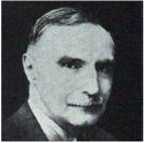Marmaduke Pickthall
| Muhammad Marmaduke Pickthall | |
|---|---|
 | |
| Born |
Marmaduke William Pickthall 7 April 1875 Harrow, London, England |
| Died |
19 May 1936 (aged 61) Porthminster Hotel, St Ives, Cornwall, England |
Resting place | Brookwood Cemetery, Brookwood, Surrey, England |
| Occupation | Islamic scholar |
| Religion | Sunni Islam |
Muhammad Marmaduke Pickthall (born Marmaduke William Pickthall, 7 April 1875 – 19 May 1936) was a Western Islamic scholar noted for his English translation of the Qur'an. A convert from Christianity, Pickthall was a novelist, esteemed by D. H. Lawrence, H. G. Wells, and E. M. Forster, as well as a journalist, headmaster, and political and religious leader. He declared his conversion to Islam in dramatic fashion after delivering a talk on ‘Islam and Progress' on November 29, 1917, to the Muslim Literary Society in Notting Hill, West London. He was also involved with the services of the Woking Muslim Mission in the absence of Khwaja Kamal-ud-Din, its founder.[1]
Biography
Marmaduke Pickthall was born in 1875 to Mary O'Brien and the Reverend Charles Grayson Pickthall, a comfortable middle-class English family, whose roots trace back to a knight of William the Conqueror. He was born near Woodbridge in Suffolk, as his father, Charles, was an Anglican parson in this region.[2] On the death of his father, when Pickthall was five, the family moved to London. He was a shy and sickly child, suffering from bronchitis. He attended Harrow School but left after six terms.[3]
Pickthall travelled across many Eastern countries, gaining a reputation as a Middle-Eastern scholar.[citation needed] Before declaring his faith as a Muslim, Pickthall was a strong ally of the Ottoman Empire. He studied the Orient, and published articles and novels on the subject. While in the service of the Nizam of Hyderabad, Pickthall published his English translation of the Qur'an with the title The Meaning of the Glorious Koran. The translation was authorized by the Al-Azhar University and the Times Literary Supplement praised his efforts by writing "noted translator of the glorious Quran into English language, a great literary achievement."[4]
When a propaganda campaign was launched in the United Kingdom in 1915 over the massacres of Armenians, Pickthall rose to challenge it and argued that the blame could not be placed on the Turkish government entirely. At a time when Muslims in London had been co-opted by the Foreign Office to provide propaganda services in support of Britain's war against Turkey, Pickthall's stand was considered[citation needed] courageous given the wartime climate. When British Muslims were asked to decide whether they were loyal to the Allies (Britain and France) or the Central Powers (Germany and Turkey), Pickthall said he was ready to be a combatant for his country so long as he did not have to fight the Turks. He was conscripted in the last months of the war and became corporal in charge of an influenza isolation hospital.[citation needed]
In 1920 he went to India with his wife to serve as editor of the Bombay Chronicle, returning to England only in 1935, a year before his death at St Ives, Cornwall. It was in India that he completed his famous translation, The Meaning of the Glorious Koran.
Pickthall was buried in the Muslim cemetery at Brookwood in Surrey, England, where Abdullah Yusuf Ali was later buried.
Written works
- Said the Fisherman (1903)
- Enid (1904)
- Brendle (1905)
- The House of Islam (1906)
- The Myopes (1907)
- Children of the Nile (1908)
- The Valley of the Kings (1909)
- Pot an Feu (1911)
- Larkmeadow (1912)
- The House at War (1913)
- With the Turk in Wartime (1914)
- Tales from Five Chimneys (1915)
- Veiled Women (1916)
- Knights of Araby (1917)
- Oriental Encounters (1918)
- Sir Limpidus (1919)
- The Early Hours (1921)
- The Meaning of the Glorious Koran: An Explanatory Translation (1930)
See also
| Wikisource has original text related to this article: |
- Abdullah Yusuf Ali
- Ali Ünal
- Ahmed Raza Khan
- Rowland Allanson-Winn, 5th Baron Headley
- Henry Stanley, 3rd Baron Stanley of Alderley
- Sir Charles Edward Archibald Watkin Hamilton, 5th Baronet
- William Abdullah Quilliam
- Timothy Winter
- Faris Glubb
- Ahmad Thomson
- Islam in the United Kingdom
- Muhammad Qasim Nanotvi
References
- ↑ http://www.wokingmuslim.org/pers/pickthall/woking.htm
- ↑ http://www.masud.co.uk/ISLAM/bmh/BMM-AHM-pickthall_bio.htm
- ↑ http://www.thetruecall.com/home/modules.php?name=News&file=article&sid=183
- ↑ Hurst, Dennis G (2010). America on the Cusp of God's Grace. IUniverse. pp. 155–156. Retrieved 7 September 2013.
Further reading
- Obituary in The Times, Wednesday 20 May 1936, Page 18, Issue 47379.
External links
- Online Quran Project includes the Qur'an translation by Marmaduke Pickthall.
- Web based Quran Search application Based on the translation from Marmaduke Pickthall.
- A biography of Marmaduke William Pickthall
- The English translation of the Qur'an by Marmaduke William Pickthall
- Works by Marmaduke Pickthall at Project Gutenberg
- Pickthall, the Woking Muslim Mission, and his views about Lahore Ahmadiyya leaders
- ODNB article by Mohammad Shaheen, ‘Pickthall, Marmaduke William (1875–1936)’, Oxford Dictionary of National Biography, Oxford University Press, 2004; online edn, May 2007 [http://www.oxforddnb.com/view/article/60874, accessed 21 Oct 2010]
- Complete Marmaduke Pickthall translation including arabic, transliteration, audio recital and translation by Abdullah Yusuf Ali and Mohammed Habib Shakir
- Search across Marmaduke Pickthall translation and across other translations by Abdullah Yusuf Ali and Mohammed Habib Shakir
|